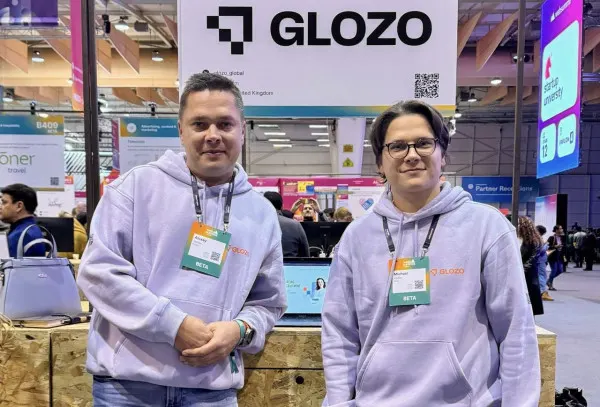The Power of Skills Matching: Recruitment in the AI Era

In today's rapidly evolving job market, the ability to effectively match skills to job requirements has become crucial for both employers and job seekers. Skills matching, powered by artificial intelligence (AI), is transforming the recruitment landscape, offering a more efficient and accurate way to connect talent with opportunities. This article explores the concept of skills matching and its impact on modern hiring practices.
Understanding Skills Matching
Skills matching is the process of aligning an individual's competencies with the requirements of a specific job role. This approach goes beyond traditional resume scanning, focusing on the actual abilities and expertise a candidate possesses. With the advent of AI-powered platforms like Glozoai, the process of matching skills to jobs has become more sophisticated and precise.
The Evolution of Competency Matching
Historically, matching candidates to jobs relied heavily on keyword matching in resumes. However, this method often fell short in identifying truly qualified candidates. Modern competency matching systems use advanced algorithms to analyze a wide range of data points, including:
- Work experience
- Educational background
- Certifications
- Soft skills
- Technical proficiencies
These systems can provide a more holistic view of a candidate's capabilities, leading to better job matches and improved hiring outcomes.
AI-Powered Skills Matching: A Game-Changer
AI has revolutionized the way we approach skills matching. Platforms like Glozoai utilize machine learning algorithms to:
- Analyze job descriptions and extract key skills requirements
- Assess candidate profiles across multiple data sources
- Identify relevant skills that may not be explicitly stated in a resume
- Predict skill compatibility based on past successful matches
This technology enables recruiters to find jobs that match candidates' skills more accurately and efficiently than ever before.
Benefits of Advanced Skills Matching
For Employers
- Reduced Time-to-Hire: AI-powered skills matching significantly speeds up the candidate screening process.
- Improved Quality of Hires: By focusing on skills rather than just experience, employers can find candidates who are truly capable of performing the job.
- Reduced Bias: Objective skills assessment helps minimize unconscious bias in the hiring process.
- Cost-Effective: Streamlined recruitment processes lead to lower overall hiring costs.
For Job Seekers
- Better Job Fit: Candidates are more likely to be matched with roles that align with their actual skills and interests.
- Discover Hidden Opportunities: Skills matching can reveal job opportunities that a candidate might not have considered otherwise.
- Career Development: By understanding which skills are in demand, job seekers can focus on developing relevant competencies.
Implementing Skills Matching in Your Recruitment Strategy
To effectively incorporate skills matching into your hiring process:
- Define Clear Skill Requirements: Clearly articulate the essential and desirable skills for each role.
- Utilize AI-Powered Platforms: Leverage tools like Glozoai to automate and enhance the matching process.
- Focus on Competencies, Not Just Credentials: Look beyond degrees and job titles to assess actual skills and abilities.
- Continuously Update Skill Profiles: Regularly review and update the skills required for each role to stay current with industry trends.
The Future of Skills Matching
As technology continues to advance, we can expect even more sophisticated skills matching capabilities. LinkedIn's job skills match feature and other platforms are constantly evolving to provide more accurate and personalized job recommendations based on skills.
The EMSI skills match tool is another example of how data-driven approaches are being used to align workforce skills with industry needs. These advancements are making it easier than ever for individuals to find jobs that match their skills and for employers to identify the right talent.
Conclusion
Skills matching is more than just a trend; it's a fundamental shift in how we approach recruitment and career development. By focusing on competencies rather than traditional markers of qualification, we open up new possibilities for both employers and job seekers. As AI continues to refine these processes, we can look forward to a job market where skills truly speak louder than words.
Ready to experience the power of AI-driven skills matching? Explore Glozoai's innovative platform and revolutionize your hiring process today.
FAQ
Q: How can I match my skills to a job? A: Utilize online tools like LinkedIn's job skills match or AI-powered platforms like Glozoai to analyze your skills and find suitable job matches.
Q: What is competency matching? A: Competency matching is the process of aligning an individual's skills, knowledge, and abilities with the requirements of a specific job role or position.
Q: How accurate is AI in matching skills to jobs? A: AI-powered skills matching can be highly accurate, often outperforming traditional methods by analyzing vast amounts of data and identifying non-obvious skill correlations.
Q: Can skills matching help me change careers? A: Yes, skills matching can help identify transferable skills and suggest new career paths that align with your existing competencies.
Q: How often should I update my skills profile? A: It's recommended to review and update your skills profile regularly, at least every 6-12 months, or whenever you acquire new skills or certifications.
Stay Ahead in Hiring
Get expert tips, AI insights, and hiring trends straight to your inbox. No spam. Just the good stuff.


